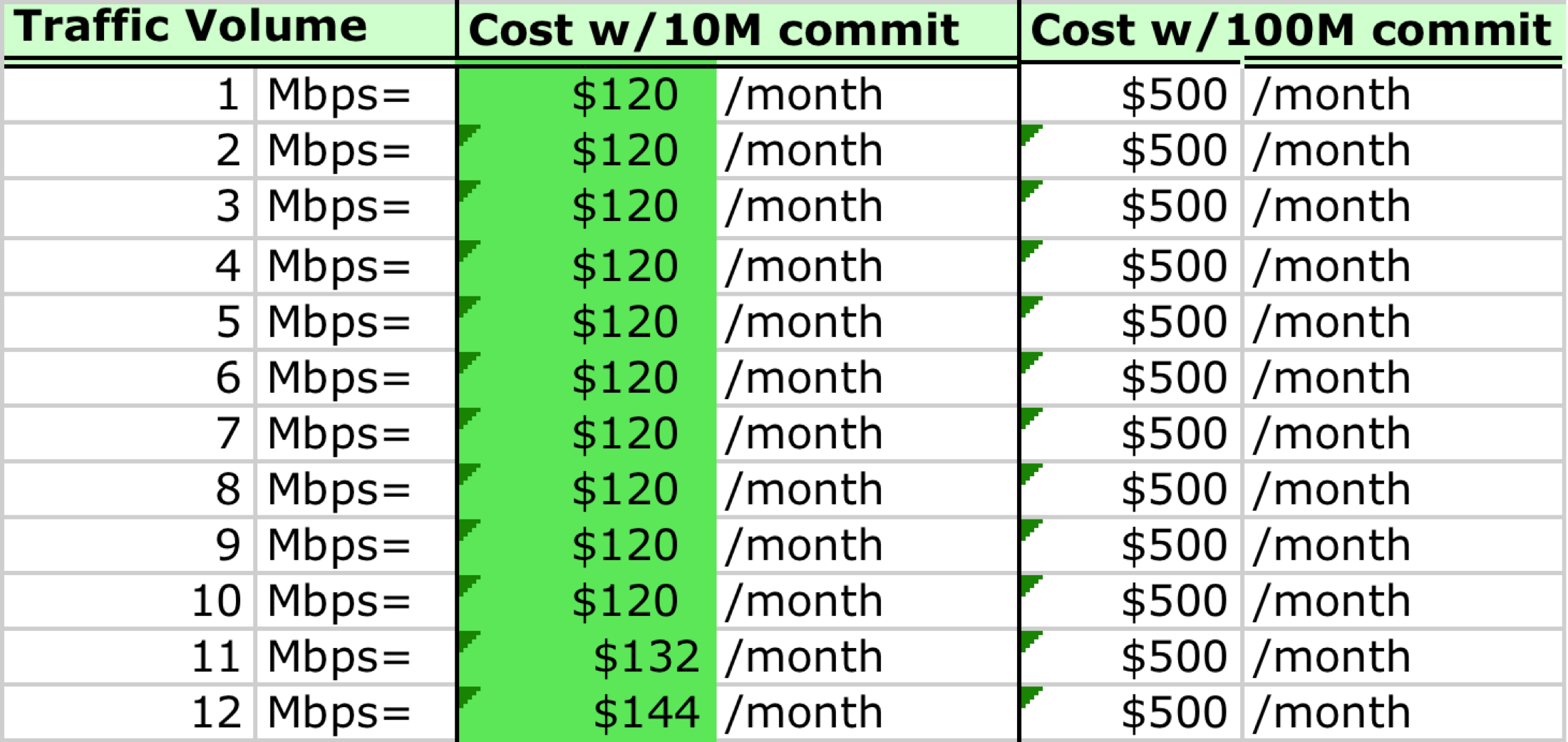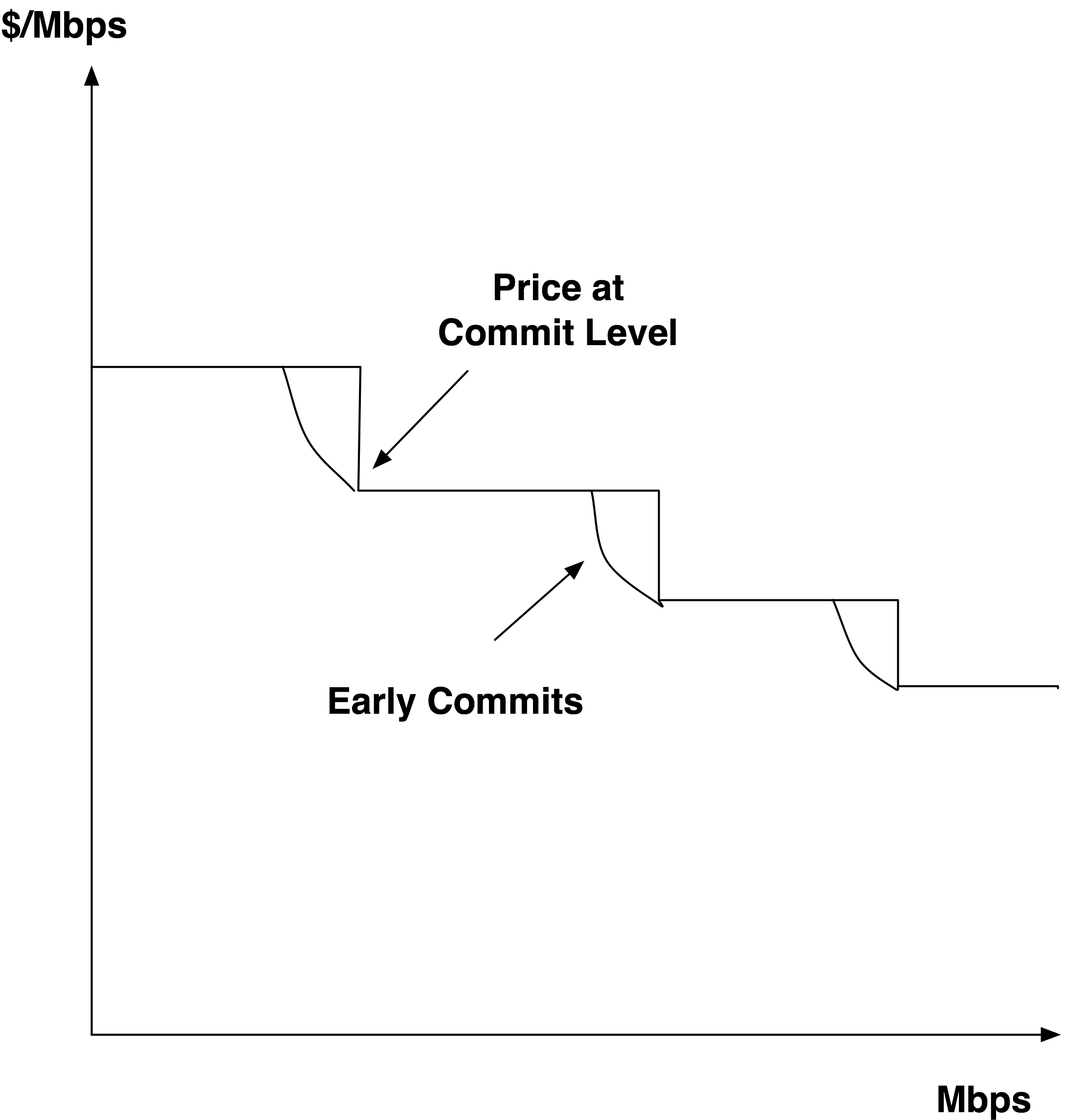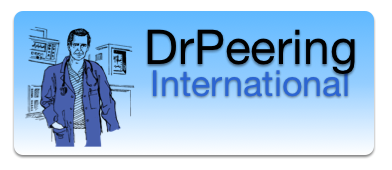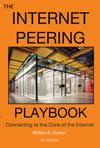Tactic 1 - Optimal Internet Transit
This tactic seeks to minimize the cost of Internet Transit by committing early to the next higher tier of commitment.
By carefully analyzing the pricing sheet, we can identify the optimal point to commit to the next higher level of traffic. Seasoned peering coordinators have learned that it is often cheaper to commit to a higher traffic volume level, even when there is little chance of actually using that much traffic in any given month.
For example, if we allocate our tiered pricing model in Table 3-1 across the number of Mbps we expect to send, we can see that it is cheaper to sign up for the lowest commit level (10Mbps) until we start using more than 41Mbps (see Table 3-2).
Table 3-2. Internet Transit Pricing Table with Commits
 :
:

The highlighted cells show the lowest monthly Internet Transit fee.
Even though you may not use the full 100Mbps commit that month, it is still less expensive to commit to 100Mbps if you expect to send more than 42Mbps. This “early commit” is shown graphically in Figure 3-1.

Figure 3-1. Tactic 1 - Early commits lead to optimal unit prices for Internet Transit.
The monthly transit price for this “Optimal Transit Heuristic” can be described formulaically as:
Optimal Transit Bill = min(T * P, C * H)
where
T = monthly traffic volume
P = unit transit price at commit level
C = next higher traffic volume commit level
H = next higher traffic volume commit level price
This heuristic can result in a reduction in monthly Internet Transit fees, but it is worth pointing out that the cost savings depend on the ability to predict the future traffic volume. The savings will disappear if for some reason the traffic volume isn’t there. For example, if you commit to 100Mbps based on the assumption that you will hit 45Mbps this month but you reach only 40Mbps, this tactic will actually cost you more money. With this tactic the company must track and project its Internet Transit traffic volumes.
Notes from the field.
Cable Companies Pay Too Much for Internet Transit?
A few ISPs said that the large access networks were not very savvy negotiators because they were paying much more than market prices for Internet Transit. They said the cable companies were paying about double the market rate. I asked a few cable companies about this, and they explained that it might be true. They said that their inclination was to commit well below the traffic projections to gain flexibility in adjusting traffic and transit purchases across providers based on market conditions. What might be assumed to be poor negotiating might actually be the exercising of a different strategy.
For those that track traffic volume very carefully, the next tactic is particularly clever (and dangerous).

